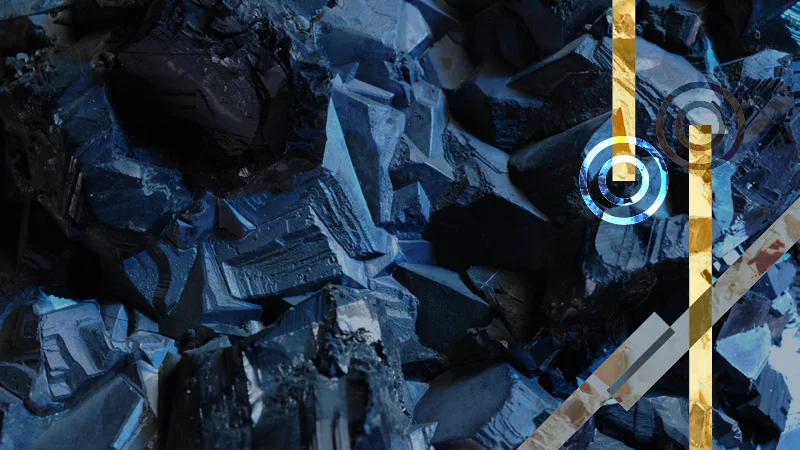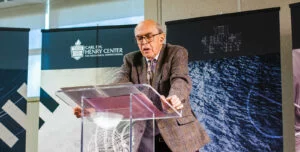“In proclaiming the resurrection of Christ, the apostles proclaimed also the resurrection of mankind in Christ; and in proclaiming the resurrection of mankind, they proclaimed the renewal of all creation with him.”Oliver O’Donovan, Resurrection and Moral Order: An Outline for Evangelical Ethics (Grand Rapids: Eerdmans, 1994).
Doctrines of creation are of tremendous importance to Oliver O’Donovan’s moral theology. Creation is not conceived merely as an abstract set of theological principles, important as they are, but as an intelligible whole within which humankind receives life and purpose. Grasping the meaning of creation allows us by extension also to grasp the scope of science, the practices by which humanity comes to thinkCreation is an ordered whole. It is intelligible, but because it encompasses everything not-God, creation surpasses human comprehension. We cannot, as it were, get our head around creation in its fullness. about the diverse phenomena given to it to think about. O’Donovan’s theology of creation is thoroughly moral in its comportment, for it is in discerning the moral contours of creation that science itself finds proper context and application.
Creation is an ordered whole. It is intelligible, but because it encompasses everything not-God, creation surpasses human comprehension. We cannot, as it were, get our head around creation in its fullness. Among the many things human thought endeavors toward, especially within the sciences, is increased knowledge of the created world as given. Science is given moral shape by the order, limits, particularities, and eventualities of the cosmos, or at least it should be thought to be so shaped. The idea of boundless science implies contradiction.
Science is likewise a human practice. Scientific inquiry is limited in its subject matter to what reality itself circumscribes. It is in this way also formatively shaped by reality. O’Donovan is occupied with the meaning and scope and purpose science is given by reality, and in attending to these features we also identify how science is moral and theological. Science is a means of adding to our practical knowledge of creation and thus of what it means for human beings to live within it. Touching lightly upon a few of O’Donovan’s representative treatments will better underscore this point.
A Brief Historical Sketch of Protestant Doctrines of Creation
Protestant doctrines of creation are peculiar, especially in their creedal formulations. Each tradition of the Reformation had its own propensity, according to O’Donovan. Lutheranism, for example, tended to assimilate doctrines of creation to law, and consequently contrasted too sharply with grace. Continental Calvinism did a better job teaching doctrines of creation, but Puritan Calvinism of the seventeenth century gradually assimilated doctrines of creation to providence and so altered its character rather dramatically. Anglicanism, at least those varieties under the influence of Richard Hooker, maintained stronger links to Thomism and so also to natural law. And still other traditions have their own idiosyncrasies. What all this suggests is that a pivotal context had been set for seventeenth-century alternatives, serving as a precursor for scientific emphases of figures like Hobbes and Locke.
The modern era has retained interest in creation, claims O’Donovan, in part because “the scientific character of our civilization has forced it upon theology as a topic of continuing importance.”Oliver O’Donovan, On the Thirty-Nine Articles: A Conversation with Tudor Christianity (Norwich: Hymns Ancient & Modern, 2011), 63. If there is something of a perceived hiatus toward doctrines of creation in the early modern period, this hiatus may well suggest an historic break (of sorts) that sets modern doctrines on new ground. In this case the hiatus meant early science and theory “took place in a vacuum where the Christian doctrine of creation might have, but did not, control the direction in which these adventures proceeded.”Ibid. O’Donovan suggests the theological It is not as though creation has truly lost the authority divinely conferred upon it, but rather that idealism is stipulated on a relocation of authority to universal reason. If God speaks it is because reasons says so.
remnants of the Reformation are so scant they can influence modern science only negatively, “by bringing into disrepute some earlier theologies of the world which conceded too little to the distance between the creature and the creator, and by putting nothing in their place.”Ibid. So, rather than a strong recovery of (patristic) creation ex nihilo, “what the Reformation as a whole offers us is a gap between God and the world, true, but one which permits of no ordered perceptions of the world, because that is characterized by sin and fallenness.” The opposition of God and the world thus becomes “swallowed up into the opposition of good and evil.”
It therefore happens that science, according to O’Donovan, “develops within the context of a worldview which understands nature apart from norms, and is idealistic in its understanding of beauty and order.”Ibid, 64. This development helps to explain why emergence of liberal Protestantism in the early nineteenth century essentially severs the doctrine of creation from Christianity altogether, contented as it was with “a self-confident and normless experimental science.” The legacy of this severance can scarcely be over-stated, for not even renewed theological fascination with creation over the twentieth and early twenty-first centuries has succeeded in resolving the tensions between the doctrine of creation and modern science as we now know it, nor has science begun to repent of its pretend normlessness.
It should be clear from all that has been said that modern science as we know it did not emerge ex nihilo but was in fact the paradoxical fruit of prolonged doctrinal neglect. Notions of ordered creation are steadily supplanted, first by theoretical mechanization of the cosmos, and then by relativity and randomness. The “Copernican revolution” describes an inversion of authority; creation once believed to bear the authority of reality becomes instead subject to a newly coronated rational authority. It is not as though creation has truly lost the authority divinely conferred upon it, but rather that idealism is stipulated on a relocation of authority to universal reason. If God speaks it is because reasons says so.
Scientific Knowledge in Resurrection and Moral Order
Early in Resurrection and Moral Order, O’Donovan sets out to establish the normativity of creation. Doing so rests on a vital theological sequence: the resurrection of Christ, the resurrection of man, and the renewal of creation. In his resurrection Christ reaffirms creation as good.For O’Donovan, creation is ordered along two planes: a teleological ordering (end) and a generic ordering (kind). Thus, according to O’Donovan, it remains crucial to see creation not merely as “the raw material out of which the world is composed, but as the order and coherence in which it is composed.”O’Donovan, Resurrection and Moral Order. The world itself is an ordered totality. Resurrection is also therefore a reminder of what God said about the goodness of his creation at the beginning.
For O’Donovan, creation is ordered along two planes: a teleological ordering (end) and a generic ordering (kind). Another way of imagining these ordering principles is as “ordering-to” and “ordering-alongside,” and they have been around the Christian theological tradition for quite some time. But in this history there have also arisen attacks both on kinds and upon ends, and it is primarily in the attack upon the latter that science asserts itself. The scientific dismissal of final ends, in particular, has a unique bearing on the subject at hand, to the extent that it seeks to sever nature from any notion of inherent purposiveness.
For O’Donovan it is the scientific method which strikes the loudest blow:
For scientific thought proceeds by self-conscious abstraction, in which the more obvious determinants of kind and end are forgotten in order that the object of investigation may be hypothetically included in other, less obvious classes.Ibid., 48.
He takes modern economics to be illustrative on this point, to the extent that it has “deliberately forgotten that vegetables are food and motor cars are artefacts, in order to discuss the growing of vegetables and the manufacture of motor cars under a single classification of ‘industry’ and the results of these labors has ‘products’.”Ibid. What these and similar examples demonstrate is that science can only pretend to dispense with final ends.
Of course, much has been said in recent decades about the modern effects of the voluntarist-nominalist coupling. Ontological priorities are occasionally thrown out of whack; normativity likewise skewed toward new priorities. Yet, as O’Donovan rightly points out, science eventually found nominalism “an enemy to its project; for science is interested in nothing if not regularities, and nominalism must deny that the regularities which science purports to observe are real.”Ibid., 49. Nominalism denies the ordering to kinds and voluntarism denies the ordering to ends, and together they crescendo in the modern idealism still dominating western consciousness.
Science’s special preoccupation with novelty is carried by a peculiar spirit. It has always wished to do something or propose something new, but its curiosity is buoyed by aspirations to step beyond present programs to instead declare itself the authority to determine what is or isn’t real. Denial of regularity or natural ordering was necessary to securing methodological primacy over all the world’s hidden structure and complexity, and this is not without ill effect.
O’Donovan identifies two rather treacherous problems that arise from sheering teleology from creation. First, “abstraction from teleology makes it impossible to know the whole universe.”Ibid. Human beings stand within and not outside the universe, and so can say nothing especially informative about the whole; comprehension of the whole is entirely God’s domain. The best that can be said for our knowledge is that we may occasionally stretch, deepen, or strengthen it. Human knowing involves limits. And as O’Donovan suggests, “knowledge which admits discontinuity as anything other than a challenge to be overcome has in principle abandoned the task of being knowledge, which is the perceptionScience’s special preoccupation with novelty is carried by a peculiar spirit. of differing fields of vision as one universe.” In other words, an abandonment of teleology leads inevitably to the fragmentation of knowledge itself. After all, “knowledge of the world without ends can never become a unified knowledge.”
Second, “abstraction from teleology creates dangerous misunderstanding of the place of man in the universe.”Ibid., 52. The turn here is Copernican. Teleological order is no longer in creation, but is instead rationally superimposed upon reality through scientific quest. Creation discloses itself to us, in other words, in terms we have decided it discloses to us. It invariably happens that “all ordering becomes deliberative ordering, and scientific observation, failing as it does to report the given teleological order within nature, becomes the servant of techne.” This, claims O’Donovan, helps to explain one of the great ironies of our time, “in which the very protection of nature has to be argued in terms of man’s ‘interest’ in preserving his ‘environment’.” Nature is invariably crushed under the technical demands placed upon it by man. Nor will the abuse likely ease. Claims O’Donovan, “man’s monarchy over nature can be healthy only if he recognizes it as something itself given in the nature of things, and therefore limited by the nature of things.” This modern science finds it virtually impossible to acknowledge.
Conclusion
In his critique and modest chastening of the modern scientific spirit, O’Donovan should not be interpreted as a sort of Luddite mystic, skeptical of all discovery or advance. His critique is rather narrow, it turns out, and his chastening of its ambitions in line with a longer history of Christian metaphysics. That science has succumbed to its reductive and technocratic impulses, evident at its earliest development, perhaps also helps to explain its affective detachment from the glory of creation as such. ‘Creation’ is for modern science a concept drained of purposiveness, transcendence, and mystery; a mere ensemble of material parts subject to rational interrogation. The modern scientist may be excited by some new discovery, but it is less obvious he delights in the creation his discovery consists in. If something like joy is present, it is often in the rational or pragmatic achievement than in the sublimity of creation.
The church, by contrast, is a glad community. “Gladness is a moral attitude,” claims O’Donovan, “a disposition of the affections appropriate to the recognition of God’s creative goodness.”Oliver O’Donovan, The Desire of the Nations: Rediscovering the Roots of Political Theology (Cambridge: Cambridge University Press, 2003), 181. This gladness is expressed by acknowledging our place as creatures within creation: “because we are ourselves God’s work, not mere observers of it, our pleasure is part of that good order of things that God has made; so that by delighting in created order, we participate in it.” Science needn’t be premised on hubris or domination; indeed science rightly done is fully infused with precisely the sort of joy and gladness O’Donovan describes. Any science neglectful of moral ordering neglects also its own purpose within and for creation.








Comments
Be the first one to make a comment!